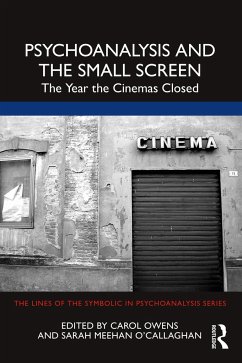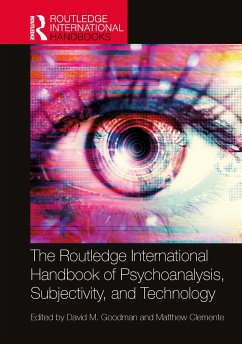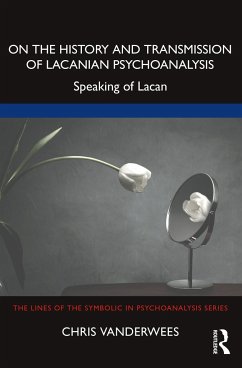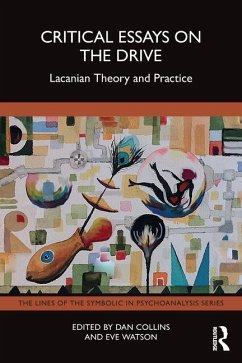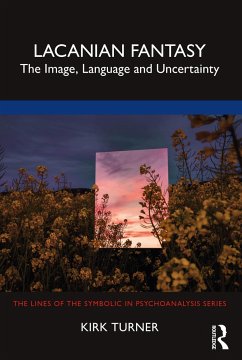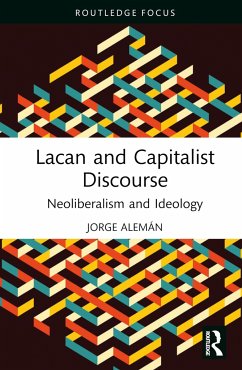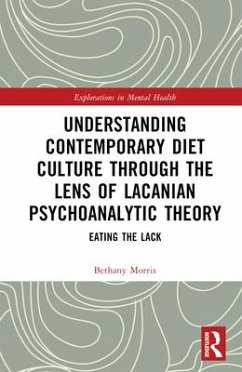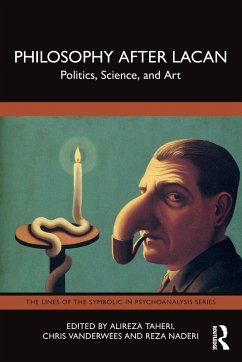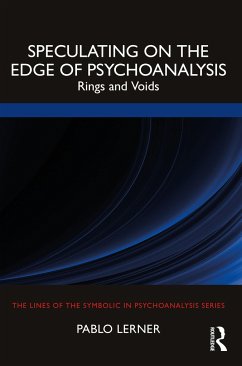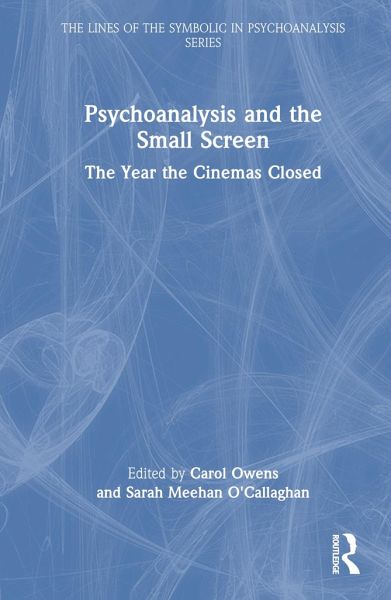
Psychoanalysis and the Small Screen
The Year the Cinemas Closed
Herausgegeben: Owens, Carol; Meehan O'Callaghan, Sarah
Versandkostenfrei!
Versandfertig in 6-10 Tagen
149,99 €
inkl. MwSt.
Weitere Ausgaben:

PAYBACK Punkte
75 °P sammeln!
Psychoanalysis and the Small Screen examines the impact of cinema closures and the shift to small-screen consumption on our aesthetic and subjective desires during the COVID-19 pandemic from a Lacanian perspective.The chapters in this text hold a unique focus on the intersections of film, psychoanalysis, and the subjective implications of the shift from cinema to the small screen of domestic space. The subjects span historical and current Lacanian thinking, including the representation of psychoanalysis as artifice, Lacan appearing on television, the travails and tribulations of computer media...
Psychoanalysis and the Small Screen examines the impact of cinema closures and the shift to small-screen consumption on our aesthetic and subjective desires during the COVID-19 pandemic from a Lacanian perspective.
The chapters in this text hold a unique focus on the intersections of film, psychoanalysis, and the subjective implications of the shift from cinema to the small screen of domestic space. The subjects span historical and current Lacanian thinking, including the representation of psychoanalysis as artifice, Lacan appearing on television, the travails and tribulations of computer mediated analysis, the traumatrope, and the techno-inflected imagined social bond of what Jacques Lacan called the 'alethosphere'. In this collection, the socio-cultural narratives and Real disruptions of the pandemic are framed as a function of the paradoxes of enjoyment characteristic of Lacanian psychoanalysis rather than merely the psychosocial repercussions of a planetary and contingent disaster.
With contributions from practicing psychoanalysts, as well as academics working in related interdisciplinary areas, Psychoanalysis and the Small Screen will have appeal to readers of contemporary Lacanian work in general, to readers and researchers of contemporary psychoanalytic studies, and transdisciplinary and intersectional scholars engaged in psychoanalytic, cultural, and psycho-social research.
The chapters in this text hold a unique focus on the intersections of film, psychoanalysis, and the subjective implications of the shift from cinema to the small screen of domestic space. The subjects span historical and current Lacanian thinking, including the representation of psychoanalysis as artifice, Lacan appearing on television, the travails and tribulations of computer mediated analysis, the traumatrope, and the techno-inflected imagined social bond of what Jacques Lacan called the 'alethosphere'. In this collection, the socio-cultural narratives and Real disruptions of the pandemic are framed as a function of the paradoxes of enjoyment characteristic of Lacanian psychoanalysis rather than merely the psychosocial repercussions of a planetary and contingent disaster.
With contributions from practicing psychoanalysts, as well as academics working in related interdisciplinary areas, Psychoanalysis and the Small Screen will have appeal to readers of contemporary Lacanian work in general, to readers and researchers of contemporary psychoanalytic studies, and transdisciplinary and intersectional scholars engaged in psychoanalytic, cultural, and psycho-social research.





